Are You 21 Or Over?
YesOr
No By clicking yes, you certify that you are over 21 years old. By using this website, you agree to our legal disclaimer.Table of Contents
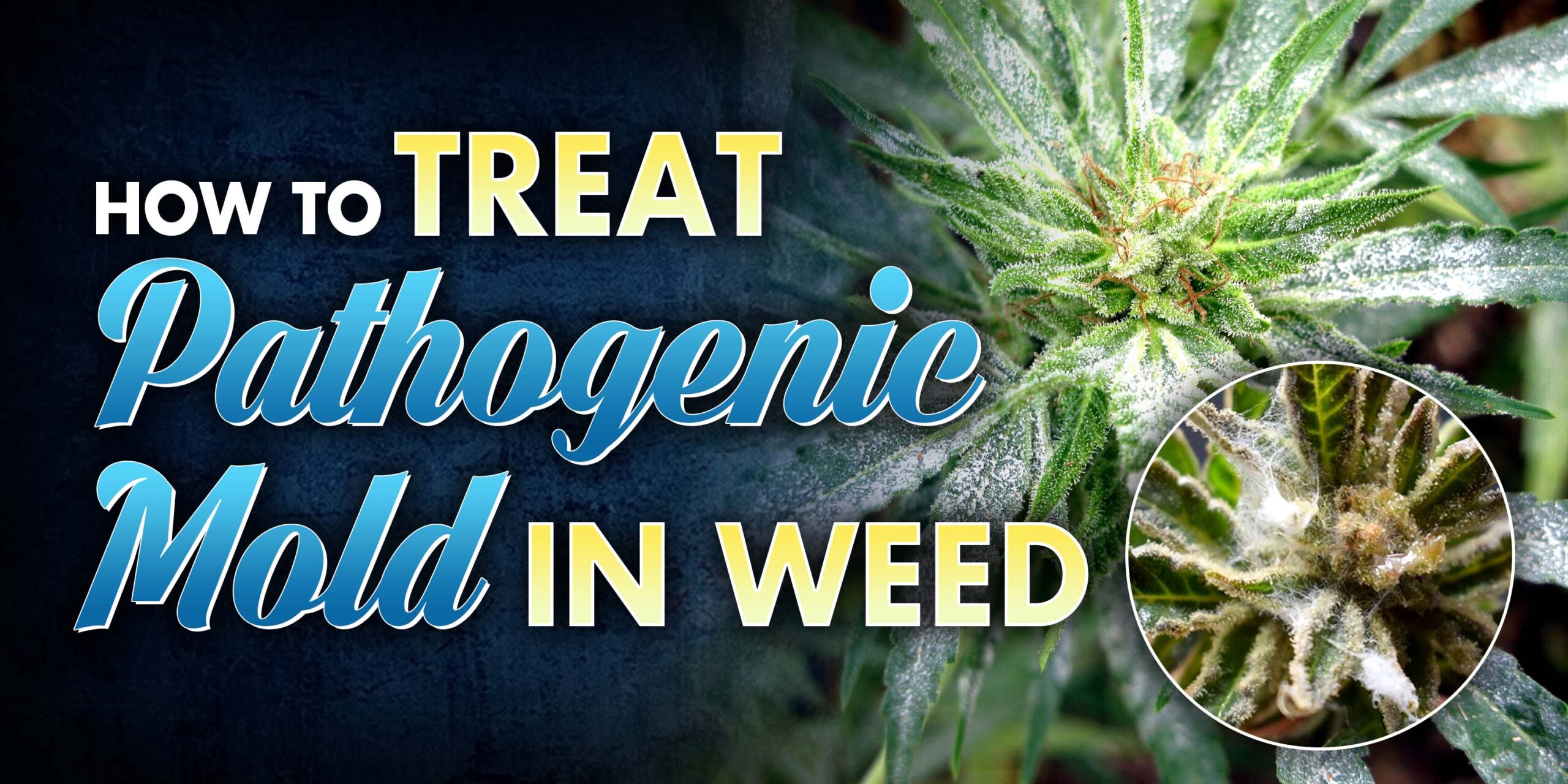
Table of Contents
Pathogenic mold, also called toxic mold, encompasses different types of fungi that can grow in both indoor and outdoor environments, such as where cannabis is grown. These molds make mycotoxins, dangerous substances that can harm health if breathed in or eaten. Some common kinds of pathogenic mold in cannabis are Aspergillus, Penicillium, and Fusarium.
Spotting pathogenic mold in weed can be tough since it often looks like fuzzy, discolored spots on the plant or its buds. Also, moldy cannabis might smell musty or earthy. It’s crucial to check your plants often, especially during flowering, to catch mold early and deal with it.
Many factors can make pathogenic mold spread in cannabis crops, such as:
Treating pathogenic mold in weed is crucial for keeping cannabis products top-notch and safe. By taking steps to prevent mold, dealing with it quickly when it shows up, and keeping everything clean, growers can protect their crops and have a good harvest. Always make sure your cannabis is safe for consumers and follows the rules when you grow and sell it.
Q: Can moldy cannabis be safely consumed after treatment?
A: It is not advisable to consume cannabis that has been contaminated with mold, even after treatment. Mold spores and toxins can persist despite treatment efforts, posing health risks to consumers.
Q: How can I prevent mold recurrence in my cannabis crops?
A: Implementing rigorous sanitation practices, optimizing growing conditions, and regularly inspecting plants for signs of mold are essential for preventing recurrence. Additionally, maintaining proper airflow and humidity levels can help minimize mold risk.
Q: Are there any natural methods for controlling mold in cannabis cultivation?
A: Yes, several natural methods, such as using essential oils, beneficial microbes, and biological fungicides, can help control mold in cannabis cultivation. These methods offer effective alternatives to chemical treatments while promoting environmental sustainability.
Q: Can moldy cannabis be salvaged for extraction purposes?
A: Moldy cannabis should not be used for extraction purposes, as mold spores and toxins can contaminate the final product, posing health hazards to consumers. It is best to discard mold-infested material to ensure product safety.
Q: How does mold exposure affect cannabis plants’ yield and potency?
A: Mold infestations can significantly reduce cannabis plants’ yield and potency by inhibiting growth, compromising nutrient uptake, and producing stress responses. Additionally, mold-contaminated buds may exhibit decreased cannabinoid and terpene content.
Q: What are the legal implications of selling mold-contaminated cannabis products?
A: Selling mold-contaminated cannabis products is illegal in regulated markets, as it poses health risks to consumers and violates quality control standards. Cultivators and dispensaries are subject to regulatory penalties for distributing tainted products.
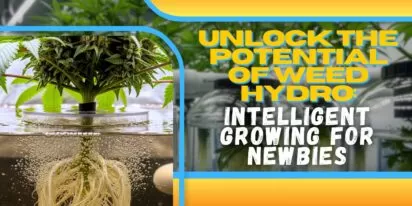
Curious about growing weed in a healthy, effective way? Welcome to the realm of weed hydro! This method uses water instead of soil, delivering n
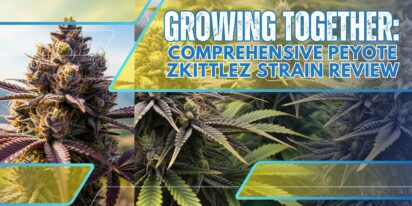
Peyote Zkittlez is a unique cannabis strain that has quickly gained dedicated followers among enthusiasts and patients alike. Its parentage—Zk
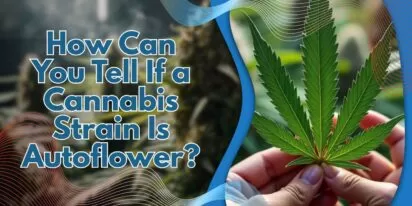
As growers, we want strains that work well, are strong, and are of good quality. Autoflowering cannabis strains are a big step forward for both
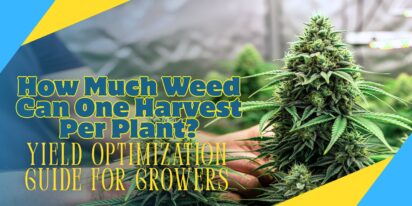
Pot growers always ask the same basic question: How much weed does a weed plant produce? The answer is complex and depends on a multitude of var

Ever had the room spin after a few hits? You're not alone. Figuring out how to prevent getting dizzy high can make your cannabis experience a wh
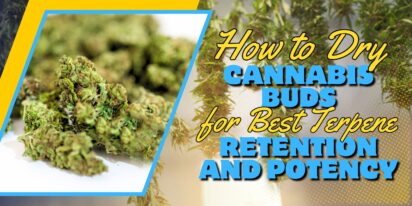
Drying cannabis properly is a critical process in preserving the plant's full aroma and flavor and its psychoactive abilities. Tampering with th

Ever caught yourself a bit too high and all of a sudden in need of being normal? Whether you're heading out for munchies or bumping into someone
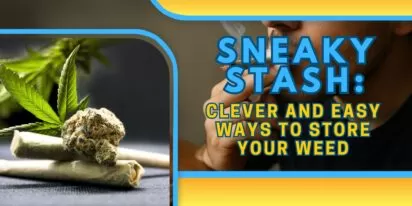
Looking for sage advice on how not to get pinched with weed without batting an eye? Attempting to protect your stash from gossipy roommates, sno
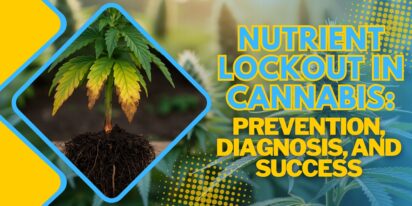
Nutrient lockout, also known as nutrient binding or chemical antagonism, is a significant issue in cannabis cultivation that negatively impacts
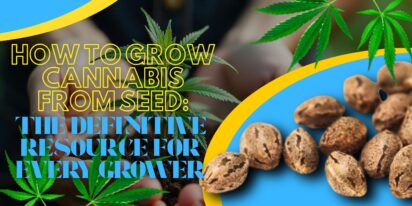
Germination is the most critical initial stage in growing healthy, high-quality cannabis plants. During germination, the dormant seed becomes a
Are You 21 Or Over?
YesOr
No By clicking yes, you certify that you are over 21 years old. By using this website, you agree to our legal disclaimer.
Excellent blog here Also your website loads up very fast What web host are you using Can I get your affiliate link to your host I wish my web site loaded up as quickly as yours lol
Your writing is not only informative but also incredibly inspiring. You have a knack for sparking curiosity and encouraging critical thinking. Thank you for being such a positive influence!
Simply wish to say your article is as amazing The clearness in your post is just nice and i could assume youre an expert on this subject Well with your permission let me to grab your feed to keep updated with forthcoming post Thanks a million and please carry on the gratifying work
Somebody essentially lend a hand to make significantly articles Id state That is the very first time I frequented your website page and up to now I surprised with the research you made to make this actual submit amazing Wonderful task
Your blog is a beacon of light in the often murky waters of online content. Your thoughtful analysis and insightful commentary never fail to leave a lasting impression. Keep up the amazing work!
Thank you for the auspicious writeup It in fact was a amusement account it Look advanced to more added agreeable from you By the way how could we communicate
Your blog is a constant source of inspiration for me. Your passion for your subject matter shines through in every post, and it’s clear that you genuinely care about making a positive impact on your readers.
Your blog is a constant source of inspiration for me. Your passion for your subject matter is palpable, and it’s clear that you pour your heart and soul into every post. Keep up the incredible work!
Your articles never fail to captivate me. Each one is a testament to your expertise and dedication to your craft. Thank you for sharing your wisdom with the world.
Your blog is a testament to your dedication to your craft. Your commitment to excellence is evident in every aspect of your writing. Thank you for being such a positive influence in the online community.
Your writing has a way of resonating with me on a deep level. I appreciate the honesty and authenticity you bring to every post. Thank you for sharing your journey with us.
Your blog is a true gem in the world of online content. I’m continually impressed by the depth of your research and the clarity of your writing. Thank you for sharing your wisdom with us.
Hi i think that i saw you visited my web site thus i came to Return the favore Im attempting to find things to enhance my siteI suppose its ok to use a few of your ideas
Somebody essentially help to make significantly articles Id state This is the first time I frequented your web page and up to now I surprised with the research you made to make this actual post incredible Fantastic job
Usually I do not read article on blogs however I would like to say that this writeup very compelled me to take a look at and do so Your writing taste has been amazed me Thanks quite nice post
Your blog has quickly become one of my favorites. Your writing is both insightful and thought-provoking, and I always come away from your posts feeling inspired. Keep up the phenomenal work!
Every time I visit your website, I’m greeted with thought-provoking content and impeccable writing. You truly have a gift for articulating complex ideas in a clear and engaging manner.
Hey there You have done a fantastic job I will certainly digg it and personally recommend to my friends Im confident theyll be benefited from this site
I have read some excellent stuff here Definitely value bookmarking for revisiting I wonder how much effort you put to make the sort of excellent informative website
Nice blog here Also your site loads up very fast What host are you using Can I get your affiliate link to your host I wish my site loaded up as quickly as yours lol
What i do not understood is in truth how you are not actually a lot more smartlyliked than you may be now You are very intelligent You realize therefore significantly in the case of this topic produced me individually imagine it from numerous numerous angles Its like men and women dont seem to be fascinated until it is one thing to do with Woman gaga Your own stuffs nice All the time care for it up
Your blog is a beacon of light in the often murky waters of online content. Your thoughtful analysis and insightful commentary never fail to leave a lasting impression. Keep up the amazing work!
Your blog is a breath of fresh air in the often stagnant world of online content. Your thoughtful analysis and insightful commentary never fail to leave a lasting impression. Thank you for sharing your wisdom with us.
Your blog is a beacon of light in the often murky waters of online content. Your thoughtful analysis and insightful commentary never fail to leave a lasting impression. Keep up the amazing work!
Usually I do not read article on blogs however I would like to say that this writeup very compelled me to take a look at and do it Your writing style has been amazed me Thank you very nice article
Your writing has a way of resonating with me on a deep level. I appreciate the honesty and authenticity you bring to every post. Thank you for sharing your journey with us.
This hydroponics guide is quite the buzz, seriously! Who knew growing weed without dirt could be so complicated yet potentially rewarding? The breakdown of systems like DWC and NFT is helpful, though I suspect my cat might confuse the air pump for a toy. The idea of cleaner buds is tempting, especially since explaining hydro weed to my non-growing friends might get messy. And the bit about potential dizziness from hydro weed? Perfect, now I have an excuse for why I always stumble a bit after a grow session. Still, the promise of faster grows and higher yields is hard to ignore, even if it means more trips to the pH meter than to the coffee shop. Overall, a cultivating read for the curious grower!